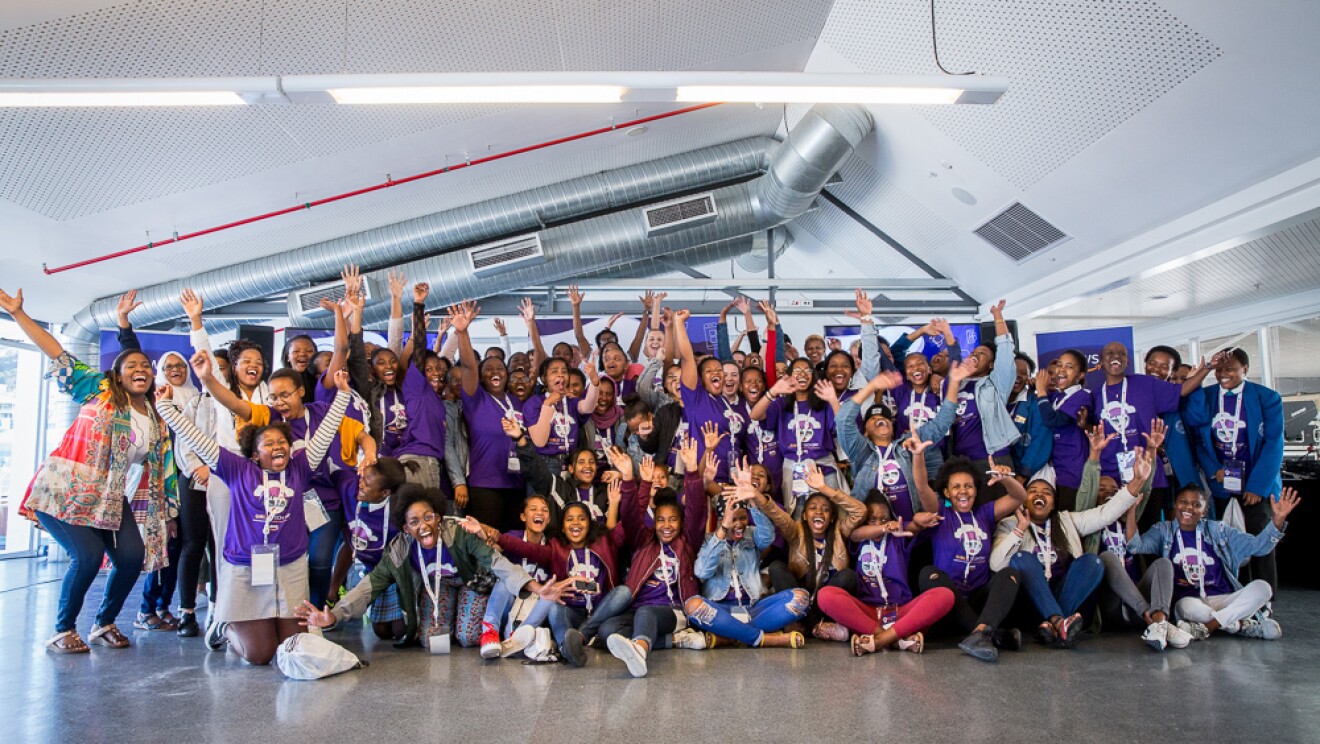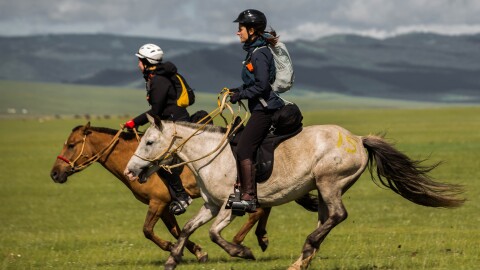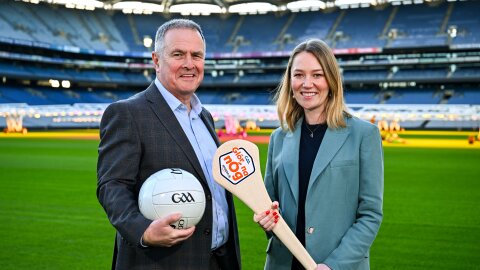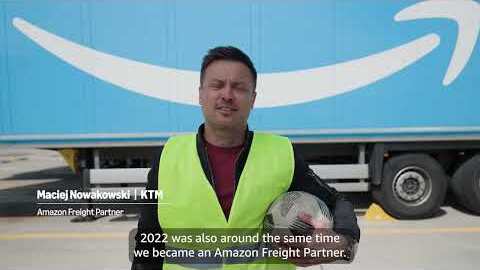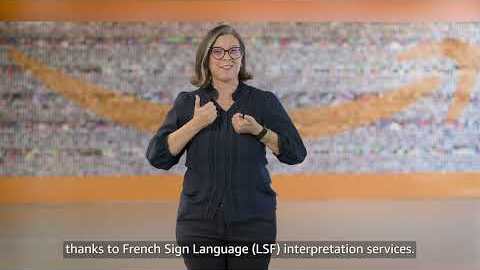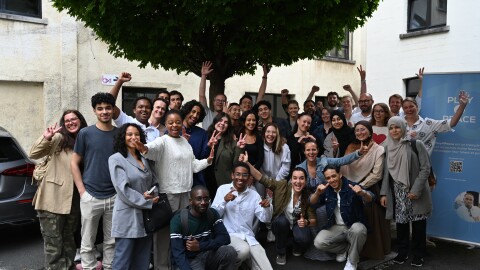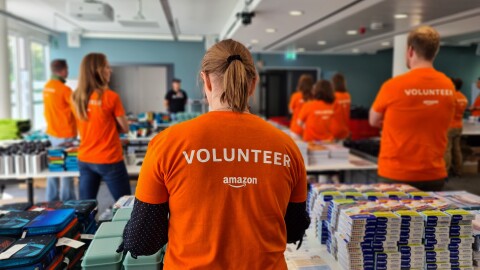As Global Leader of AWS InCommunities, Cornelia Robinson is responsible for driving new initiatives and programs that bring about positive change in the tech industry and in communities around the world.
AWS InCommunities was established to create and deliver long-term and innovative programs, globally and locally, that will have a lasting impact in communities, particularly in regions where AWS builds and operates global infrastructure. Some examples of this include AWS Tech Week, Girls’ Tech Days, the AWS Family Tech Series and AWS Think Big Spaces.
AWS InCommunities also supports local communities through donations, working with local charities and employee volunteering – such as Thomas Carroll, the AWS InCommunities volunteer on a mission to support Dublin’s classrooms, hospitals and homeless shelters.
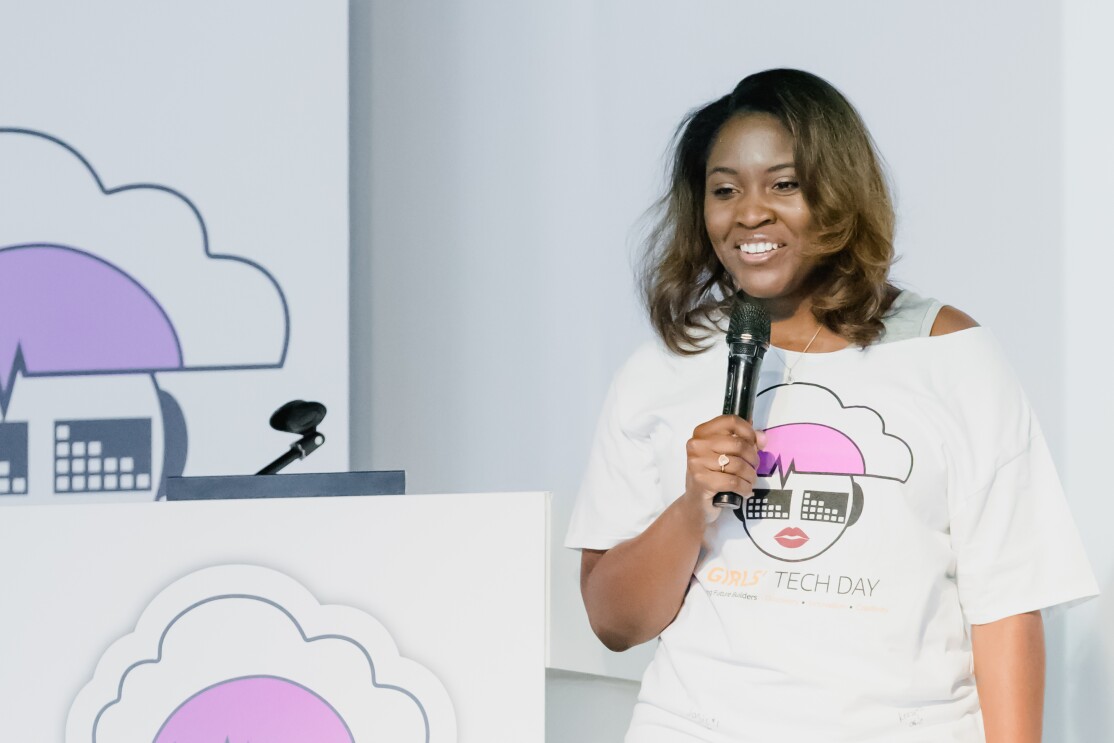
As Cornelia prepares to take part in a fireside chat at this year’s Diversity in Tech Awards, we sat down to discuss her work and ambitions to drive global change in tech.
Tell us about your journey to AWS.
I grew up in Pensacola, Florida – next to Alabama – hence the Southern accent! From there I studied at Spelman College, a historically black college in Atlanta, Georgia, before heading to law school at Vanderbilt University in Nashville, Tennessee.
As a graduate specializing in contract and transactional law, I then landed at the US Drug Enforcement Agency working on contracts for everything from pens to planes. One day I took a call from AWS which would change my life, as I took up a role in procurement contracts and developed from a team leader to a regional leader and then a global leader in my field.
Throughout my early career with AWS, I saw how integral the relationships were between AWS and the communities where we operate. So I started asking a big question: What more can we do to support these communities?
Over time, I built a business case to support more in-depth community engagement that would go on to become AWS InCommunities as we know it today.
Although I never imagined my career would take this path, I always knew I wanted to help other people one day – especially young children – so I’m delighted that this became a full-time role that has the potential to make a positive impact around the world.
How does AWS InCommunities work?
The goal of AWS InCommunities is to be a good neighbor. If we’re thoughtful and intentional, if we tailor our activity to address the needs of local communities, we believe we can have a real impact.
We focus on four areas: STEAM (Science, Technology, Engineering, the Arts and Mathematics) education, equity and access, building local technical skills, and environmental stewardship. Everything we create around those areas starts with ‘hyper-local’ community thinking, so we listen to and learn from the communities to understand their priorities.
Customer and community obsession are a core part of everyday life at Amazon. Whether we’re building new products and services or giving back to communities, we always start the journey by ‘working backwards’ to find solutions that work.
In each community, unique themes and nuances emerge in areas like education, healthcare or skills. But on a global level we also see universal themes around STEAM education, equity and access, and the environment.
Our Community Engagement Managers spend time getting to know their local community and asking an important question: What does it mean to be a good neighbor?
In India, for example, when rolling out our AWS Think Big Spaces, we spotted the need to reach rural or remote communities – so we created one on wheels so we could reach as many people as possible.
In Cape Town, South Africa, we’re working with the Centre of Science and Technology (COSAT) to help students continue to study online via mobile devices during the COVID-19 pandemic.
We’ve also worked with a local school in Drogheda, Ireland, to help them return safely to classrooms by providing COVID-19 protective screens and sanitization stations.
In Blanchardstown, Ireland, we donated desks and an infusion chair to Connolly Hospital for patients undergoing chemotherapy, and AWS volunteers also recently refurbished a security hut and walkway that had fallen into disrepair at the entrance of the hospital.
What inspires your drive for positive change in tech?
Personally I look at my own parents, who went to segregated schools and who were involved in desegregating those schools. My aunt went to jail twice for sitting in segregated seats at the lunch counter and movie theaters. My grandmother was a nurse in a hospital that she could not give birth in herself. These are just a few examples. The progress we’ve made today is thanks to people who stood up for their beliefs.
An organization like AWS can play a powerful role in pushing for progress by taking the right steps to be a force for good in addressing structural, systemic, and social challenges ahead of us. Technology itself can help to accelerate that movement as an equalizer by widening access to opportunities for creativity and innovation.
I’m also inspired by the creativity we see around us every day. I’m a big believer that the arts are a vital component in STEAM – our best technologists are also creatives, we use both sides of our brain to think and find solutions!
What’s been your proudest achievement to date?
I’m proud to have helped steer an organization like AWS – working with teams and leaders across the business – to maximize our ability to do good by ensuring everybody has the knowledge and resources to make a positive impact at scale.
I’ve been lucky to meet young people in India, South Africa, Sweden, Australia, Singapore, Japan, Ireland and beyond, and often it’s the little things that stick with you for a long time.
At one event in Ohio, I heard two sisters talking about how AWS InCommunities had built an AWS Think Big Space in their school and run unforgettable initiatives and programs. I recognized myself in those little girls! I asked them to sign my shirt, and then I took that shirt around the world asking girls for their autograph – it reminds me that they’re at the heart of everything we do.
Some of these kids are already changing the world, or they will be very soon. In Dublin, one girl stopped me in the hallway and said: “I like you – you’re gonna work for me one day, and I’ll pay you a lot!” Well, I used to be that little girl with big dreams.
Looking ahead, are you excited for the future of diversity in tech?
We have to keep pushing for progress through real, meaningful change, including systemic change at policy level. We’re just getting started – and there is always more to do.
In truth, progress might feel slow or painful – but across our society, in a period of real change, that can’t be an excuse to go slow or to put up barriers. I like the idea of ‘patient urgency’ because there is a natural tension between what we need to do, and how we get there.
If we’re thoughtful and intentional, if we take a step back to focus on our end goal, if we’re careful to course correct when we need to, and if we’re flexible when we listen to communities in order to find solutions, then I believe AWS can play an important role in shaping the global tech industry for the better.
It starts by having passionate and informed voices around the decision-making table, so those little girls in Ohio or Dublin have real opportunities to be the difference.




